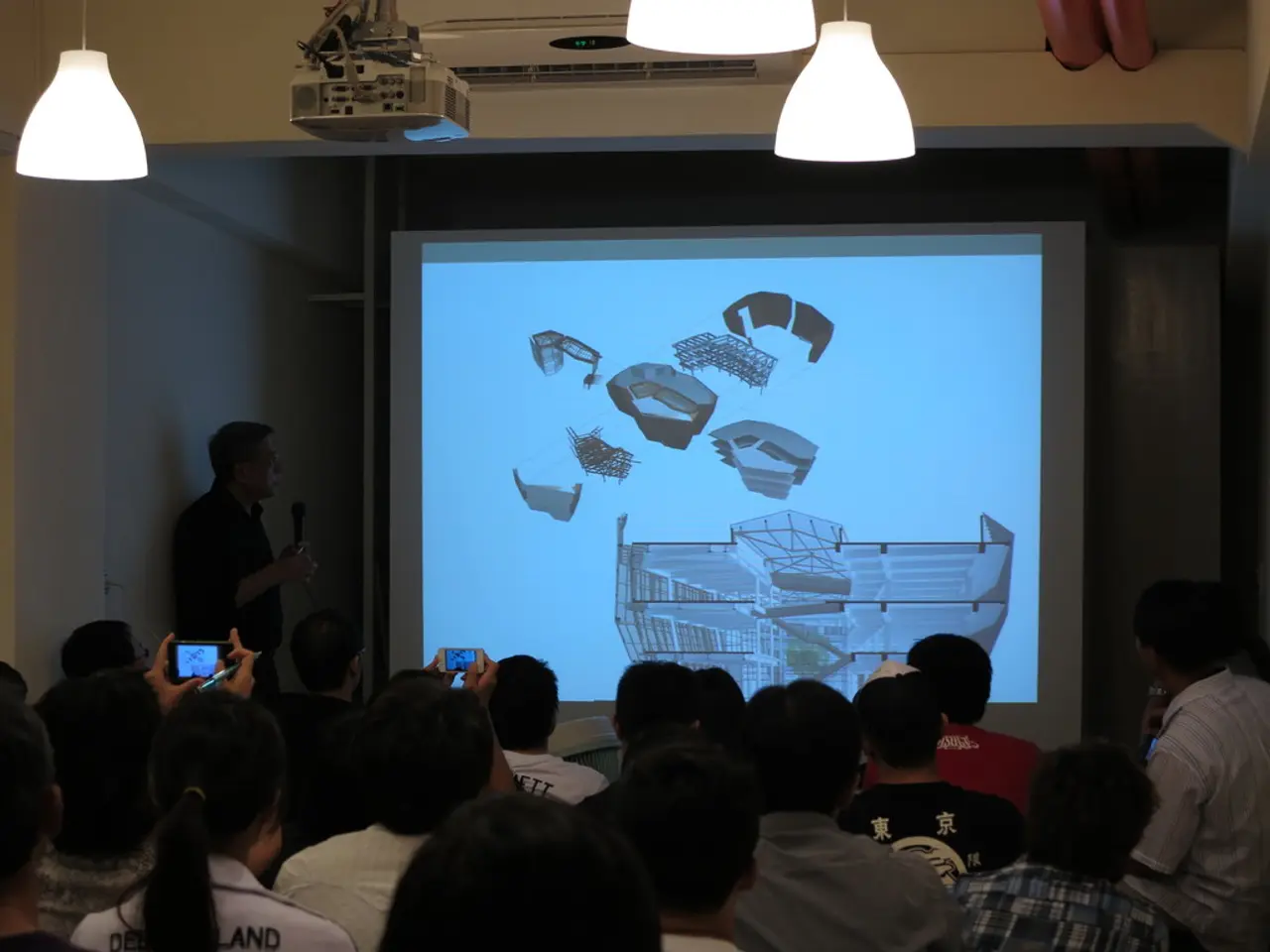Learning to Excel in AR/VR Technology - 2024 Insight
The future of immersive technology, encompassing Augmented Reality (AR), Virtual Reality (VR), and Mixed Reality, is boundless, particularly in sectors such as education, real estate, e-commerce, healthcare, entertainment, advertising, and retail [1]. This technological revolution is not limited to gaming but is increasingly demanded in industries like healthcare, education, retail, real estate, and manufacturing.
Proprioception, the body's ability to sense movement, action, and location, and sound propagation understanding are crucial for creating immersive auditory experiences in VR. Haptics, the sense of touch in AR/VR technology, further enhances the immersive experience [2].
The burgeoning AR/VR market presents diverse and rapidly expanding career opportunities. Potential roles include AR/VR Developers, who create interactive environments using tools like Unity, Unreal Engine, C++, and Python; 3D Artists and Animators, who design realistic models and animations; AR/VR Designers, who focus on user-friendly interfaces and interactive environments; Product Managers, who oversee development lifecycles and coordinate teams; Content Creators, who produce educational, entertainment, or marketing content; Research Scientists, who push the boundaries of human-computer interaction and immersive technology; and Hardware Engineers, who design new sensors, headsets, and input devices [1].
The integration of Artificial Intelligence (AI) and Computer Vision is a future trend, with roles like Computer Vision Engineer becoming increasingly important for enabling technologies like facial recognition and AR filters [2]. The demand for specialized skills is growing, with employers favouring candidates with degrees in computer science, engineering, or design for AR development and design roles [3].
AR/VR is making significant strides in education and training, with content creators and training developers producing immersive educational materials for skills development and remote learning [1]. Project and Product Management roles are also on the rise, as AR/VR projects become more complex [3].
Leading institutions like MIT, Stanford, University of Washington, Georgia Tech, and USC offer specialized AR/VR and human-computer interaction programs for those seeking to enter this exciting field [1]. The future of AR/VR careers is promising, with strong job growth, competitive salaries, and a broadening scope across industries [3][4].
Creativity, collaboration, communication, problem-solving, and effective story-telling skills are vital for success in AR/VR technology. Software development and hardware operation knowledge are also crucial [5]. The gaming industry, with its engaging and creative games, provides a glimpse of what immersive technology aspires to achieve [6].
During the COVID-19 pandemic, the adoption of AR/VR technology increased significantly in various industries [7]. Monolith, for instance, offers an AR/VR course with an advanced Immersive lab, providing both theoretical knowledge and practical skills [8]. Enrolling in such courses can provide a competitive edge and equip students with the interpersonal skills necessary for the field [9].
AR is the real-time accumulation of graphics or text over an existing real-world object, while XR, an umbrella term, includes Virtual Reality, Augmented Reality, and Mixed Reality [10]. Knowledge of Optical Physics and Light is important for manipulating visual senses in VR [11].
The immersive technology landscape is dynamic and multidisciplinary, requiring continual learning and adaptation. As we delve deeper into this exciting frontier, the possibilities are endless, and the potential for innovation is immense.
References: [1] Statista (2021). Global Augmented Reality (AR) and Virtual Reality (VR) market size 2016-2025. https://www.statista.com/outlook/10110000/0/augmented-reality-ar-and-virtual-reality-vr-market [2] VentureBeat (2021). The rise of computer vision in AR and VR. https://venturebeat.com/2021/03/01/the-rise-of-computer-vision-in-ar-and-vr/ [3] Burns, M. (2020). The top AR/VR jobs of 2020. https://www.forbes.com/sites/mikeburns/2020/09/15/the-top-arvr-jobs-of-2020/?sh=641d61252ee0 [4] Glassdoor (2021). AR/VR salary report. https://www.glassdoor.com/Salaries/ar-vr-salary-SRCH_KO0,25.htm [5] IEEE (2020). The future of AR/VR: A survey of the state of the art. https://ieeexplore.ieee.org/document/8976205 [6] Engadget (2021). The future of gaming: AR and VR. https://www.engadget.com/the-future-of-gaming-ar-and-vr-050418776.html [7] CNBC (2020). How the pandemic is accelerating AR and VR. https://www.cnbc.com/2020/03/26/how-the-pandemic-is-accelerating-ar-and-vr.html [8] Monolith (2021). Immersive technology course. https://www.monolithvr.com/immersive-tech-course/ [9] Monolith (2021). Immersive technology course. https://www.monolithvr.com/immersive-tech-course/ [10] ARtillry (2019). XR industry landscape: AR, VR, MR, and the ecosystem. https://www.artillry.co/research/xr-industry-landscape/ [11] Road to VR (2019). The importance of optical physics for VR. https://www.roadtovr.com/the-importance-of-optical-physics-for-vr/
- The integration of technology like AR, VR, and Mixed Reality is significantly impacting various sectors, such as education, healthcare, retail, and e-commerce, by offering immersive educational materials for learning and skills training.
- As the AR/VR market continues to grow, diverse career opportunities emerge for individuals with specialized skills, such as AR/VR Developers, 3D Artists and Animators, AR/VR Designers, Product Managers, Content Creators, Research Scientists, and Hardware Engineers.
- As AR and VR expand their reach across industries, the demand for interpersonal skills like creativity, collaboration, communication, problem-solving, and effective storytelling is becoming increasingly important, alongside technical skills in software development and hardware operation.




